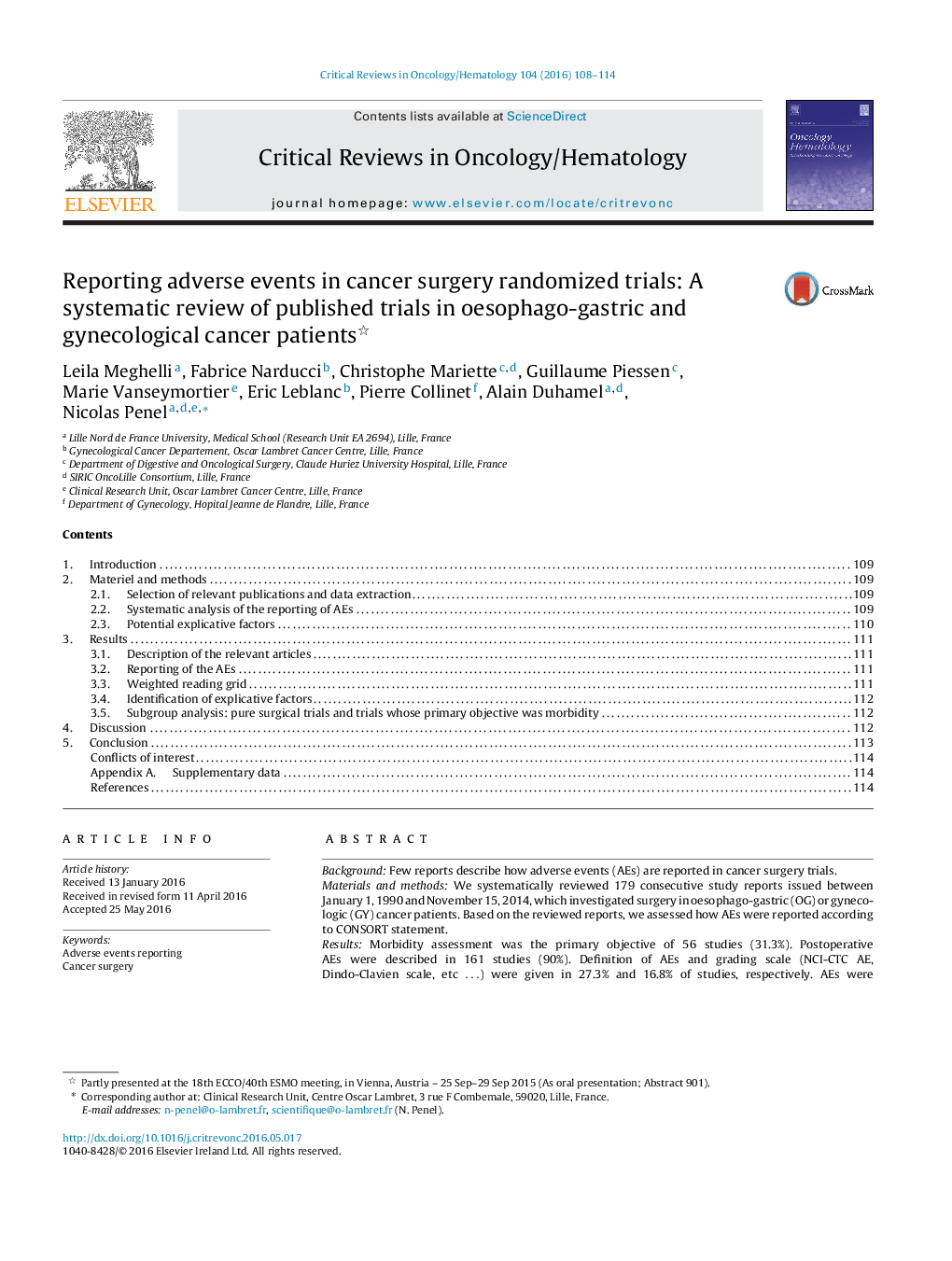| Article ID | Journal | Published Year | Pages | File Type |
|---|---|---|---|---|
| 6113346 | Critical Reviews in Oncology/Hematology | 2016 | 7 Pages |
â¢The primary objective of surgical oncology trials is the description of adverse events.â¢In surgical oncology trials, the definition of adverse event is given in less than one third of articles.â¢The adverse events in surgical oncology trials are poorly reported.â¢The reporting of adverse events is not better in high-impact factor journals.â¢The reporting of adverse events did not improve over time.
BackgroundFew reports describe how adverse events (AEs) are reported in cancer surgery trials.Materials and methodsWe systematically reviewed 179 consecutive study reports issued between January 1, 1990 and November 15, 2014, which investigated surgery in oesophago-gastric (OG) or gynecologic (GY) cancer patients. Based on the reviewed reports, we assessed how AEs were reported according to CONSORT statement.ResultsMorbidity assessment was the primary objective of 56 studies (31.3%). Postoperative AEs were described in 161 studies (90%). Definition of AEs and grading scale (NCI-CTC AE, Dindo-Clavien scale, etc â¦) were given in 27.3% and 16.8% of studies, respectively. AEs were reported by event and grade in 8.3% of studies. Definition of expectedness, seriousness, causality and safety population were present in 0.5%, 1.1%, 7.8%, and 7.2% of the studies, respectively. Reporting of AEs did not improve over time nor better in high-impact factor journals.ConclusionThe reporting of AEs in cancer trials investigating surgery needs to be improved.
